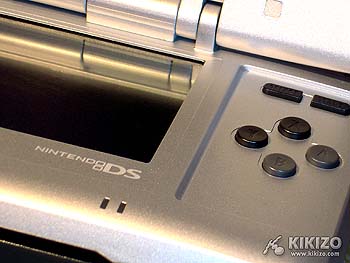Iwata Keeps It Simple
Nintendo's outspoken president reiterates the company's vision of bringing simplicity back to gaming.
For Nintendo president Satoru Iwata, it all comes back to simplicity. Nintendo has been a lone voice among industry leaders calling for a return to basics for games in a development world obsessed with violence and destruction and fiddly, complicated controls. Revolution, Nintendo's upcoming GameCube successor, will be different.
First, there's the interface. Like the games they manipulate, controllers have become overly finicky, thinks Iwata, which has the effect of ostracising those not familiar with games.
"Controllers for current consoles have more than doubled [in complexity] from older consoles," Iwata told Japanese publication Nikkei Business. "They may satisfy the hardcore gamers, but they've become too difficult for more casual gamers."
But what does this mean and how will it affect Revolution?
Iwata is notoriously circuitous in his revelations, which inevitably leads to far-flung ideas from people without all the information. The past few weeks have seen rampant and largely unfounded speculation that Revolution will not use traditional controllers at all, but will rather come equipped with touch-screen pads, similar to that of the Nintendo DS, that can be customised for each game.
Predictably, Nintendo is not giving out any specifics at the moment. "User interfaces are devices that can be easily imitated by other companies, so I can't reveal any details right now," said Iwata.
Those details are likely to come at E3 in May, where Nintendo has confirmed it will show off its new hardware. The show will also offer more information about Revolution's wireless connectivity capabilities, which were recently revealed during Iwata's keynote address at the Game Developers Conference.
Revolution will use WiFi to connect wirelessly to home networks and the Internet, presumably for online gaming. The WiFi connection will also allow Revolution and the Nintendo DS to communicate, a direction Nintendo has been moving ever since it announced the GameCube-to-Game Boy Advance connectivity feature in 2003.
Here again, though, Nintendo is emphasising ease of use above all. It's not good enough that Revolution should go online, but it should be able to do it effortlessly. "The next-generation console will follow along that same line as the DS. The ideal is for users to be able to connect to the Internet without having to think about it," said Iwata.
Nintendo is also working hard to ensure that developers are kept happy. For Revolution, Nintendo has promised to keep the same underlying programming interfaces, making it easier for game creators to go about the business of making enjoyable games.
Iwata sees this return to basics as paramount for the industry. In Japan, particularly, there is a decline in the traditional video game market - although mobile phone gaming is a rapidly growing area - and Nintendo has seen its market share nearly halve with each of the last three generations. Faced with a declining share of a declining population of traditional gamers, Nintendo sees this as a crucial time for both itself and the industry, as Microsoft and Sony verge on introducing the most sophisticated and powerful video game machines the world has ever seen.
"I have the impression that the new consoles are becoming too complicated and difficult to handle for users," Iwata said in an earlier interview with Nikkei Business late last year. "And this may be the reason why the total number of game players is declining, and the game console market is shrinking."
Microsoft and Sony, however, are not as supportive of Iwata's vision. Both companies are pushing ahead with their tech-trumps-all approach for their new consoles. But as always, it will be gamers that decide who's right.
Alex Wollenschlaeger
Editor, Kikizo Games







 Satoru Iwata Video Interview - the late Nintendo president spoke with Kikizo in 2004 as 'Nintendo Revolution' loomed.
Satoru Iwata Video Interview - the late Nintendo president spoke with Kikizo in 2004 as 'Nintendo Revolution' loomed. Kaz Hirai Video Interview - the first of Kikizo's interviews with the man who went on to become global head of Sony.
Kaz Hirai Video Interview - the first of Kikizo's interviews with the man who went on to become global head of Sony. Ed Fries Video Interview - one of Xbox's founders discusses an epic journey from Excel to Xbox.
Ed Fries Video Interview - one of Xbox's founders discusses an epic journey from Excel to Xbox. Yu Suzuki, the Kikizo Interview - we spend time with one of gaming's most revered creators.
Yu Suzuki, the Kikizo Interview - we spend time with one of gaming's most revered creators. Tetris - The Making of an Icon: Alexey Pajitnov and Henk Rogers reveal the fascinating story behind Tetris
Tetris - The Making of an Icon: Alexey Pajitnov and Henk Rogers reveal the fascinating story behind Tetris Rare founders, Chris and Tim Stamper - their only interview? Genuinely 'rare' sit down with founders of the legendary studio.
Rare founders, Chris and Tim Stamper - their only interview? Genuinely 'rare' sit down with founders of the legendary studio. The History of First-Person Shooters - a retrospective, from Maze War to Modern Warfare
The History of First-Person Shooters - a retrospective, from Maze War to Modern Warfare